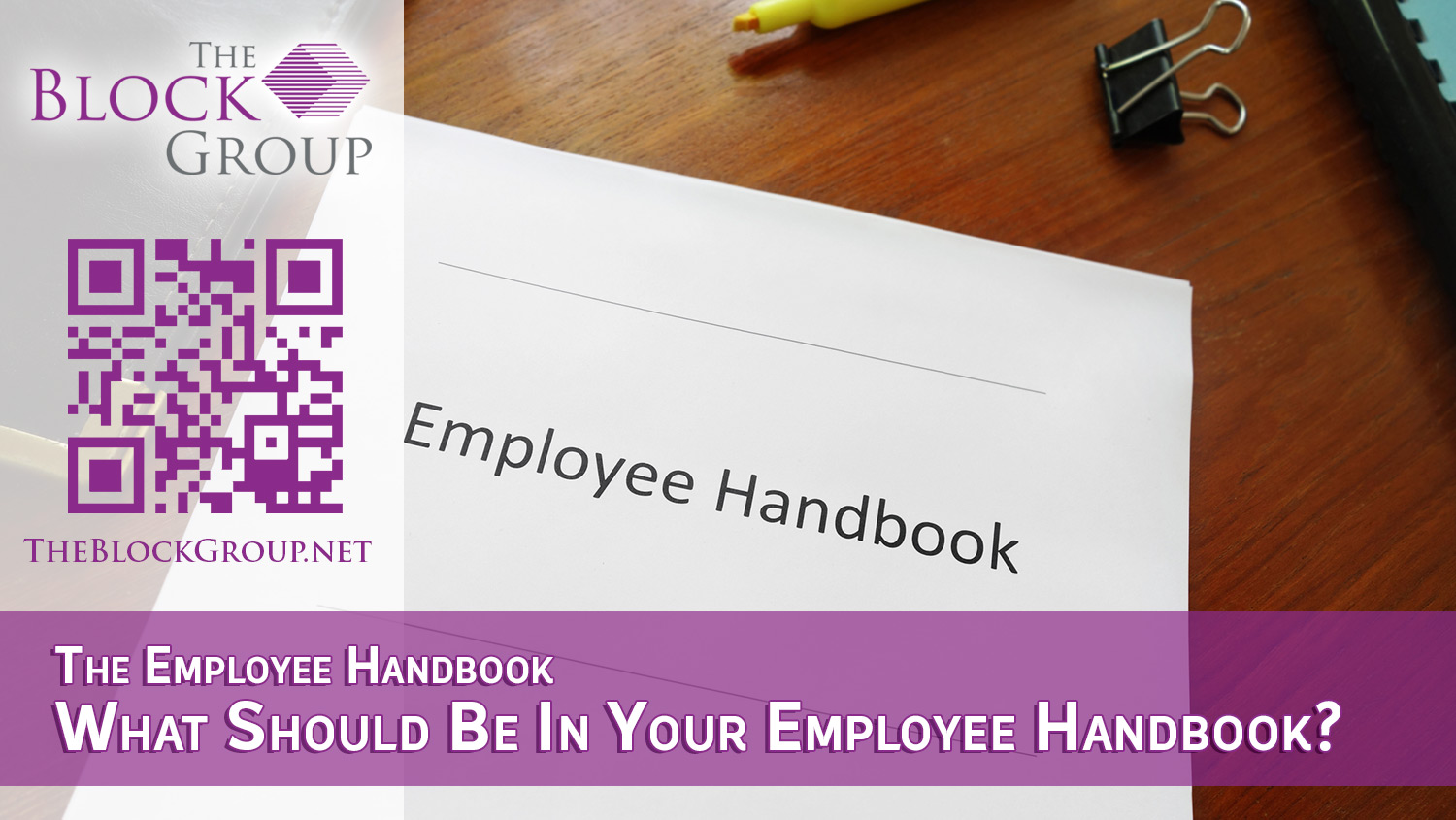
What Should Be In Your Employee Handbook?
The Employee Handbook
If you run a business that employs people, you’ve got to devote a whole lot of your time and energy cultivating and developing working relationships and processes to ensure things run smoothly. Those relationships and dynamics will constantly evolve as your business grows — and if those rules or changes aren’t properly communicated, it can create a whole lot friction among even the tightest-knit working units.
That’s why it’s essential that you draft and issue an employee handbook to all of your staff members.
What is an Employee Handbook?
If you’ve ever worked for a big corporation or a retail chain, chances are you’ve been handed a bulky employee handbook at some point in your life. At the end of the day, an employee handbook is simply a working document that spells out essential information that employees might need to refer to while they’re on the job.
They are typically all-encompassing, and are designed to answer all of the frequently asked questions employees may encounter as they’re finding their footing, and list all of the rules and regulations team members will need to comply with in order to meet the terms and conditions of employment.
But employee handbooks are no longer exclusive to corporate giants — they’re now essential tools for businesses of all shapes and sizes.
Why Do I Need an Employee Handbook?
There are plenty of benefits you can expect to receive by developing your own employee handbook, and some are more obvious than others.
First and foremost, employee handbooks are great tools with which to eliminate confusion and improve communication between you and your staff members. If you draft policies that you believe are crucial to the success of your business, you need to establish them in writing and share them with employees no later than the first day of their employment to ensure that everybody is on the same page.
On the flip side, employee handbooks also provide crucial protection for employees. When all of your company policies are spelled out in writing, you’re forced to maintain resolute consistency where enforcement is concerned. Employee handbooks help hold employers to account, and help to provide employees some peace of mind that they will receive equal treatment in the workplace, and that your business is indeed governed by sensible policies.
What Should Be in an Employee Handbook?
Just like no two businesses are alike, you’ll be hard pressed to track down two employee handbooks that are completely identical. Different things work for different companies, and various industries demand bespoke policies. But not matter type of business you’re running, there are several essentials you’ll probably want to include when drafting your employee handbook.
Non-Disclosure Agreements
Non-disclosure agreements aren’t legally required in the U.S., but it’s become increasingly commonplace to include a basic agreement or a conflict of interest statement towards the front of your employee handbook. These help to protect any proprietary information about your business, as well as your company reputation.
Anti-discrimination Policies
All business owners are legally obliged to comply with federal and state employment legislation relating to discrimination and harassment — one of the more obvious examples being the Americans with Disabilities Act. That being said, you may have laws specific to your industry or the services you provide, too. By including this information in your employee handbook, employees will both know how their rights are being protected, as well as how they are expected to treat others while at work.
Compensation
At the end of the day, most of your employees are motivated by their pay check — and so you need to spell out any and all payroll policies in writing to avoid confusion or conflict. Use your employee handbook to spell out what sort of deductions you’re required to make for state and federal taxes, and clearly explain voluntary deductions like benefits programs. You should also explain how overtime pay, payroll scheduling, salary increases and time keeping records are expected to work.
Work Schedules
One of the most basic elements of any employee handbook is time. Let your employees know any policies you might have on work hours, attendance and punctuality. Clearly explain how they are going to be expected to report absences, as well as any rules or opportunities for incorporating elements of flexible or remote working.
Code of Conduct
Another basic you’ve got to include in your handbook is a clear explanation of how you expect your employees to perform in certain situations. It’s worth mentioning things like dress code, general behavior and ethics — but you should also be wary of any legal obligations your staff may need to adhere to that are specific to your business.
Security
As an employer, you are obligated to provide all employees with a safe and secure place to work — and an employee handbook is the perfect place to tell team members exactly how you plan on doing that. You should also mention obligations your employees must adhere to, such as Occupational Safety and Health Administration regulations requiring them to report all accidents, injuries and potential safety hazards to management.
IT Policy
Even if your employees don’t work at computers, you should still draft an IT policy for inclusion within your employee handbook. This needs to cover the use of personal devices like phones, as well as social media use and how employees are accessing and using customer information, the Internet and various cloud systems while representing your company.
Employee Benefits
All employee handbooks should strive to answer all of the essentials where employee benefits are concerned. For optional benefits like health insurance, you should include all of the basics about service providers, payment options and points of contact. But there are also some required benefits you must spell out, too.
Leave Policies
It doesn’t matter how much your employees like their jobs — they’ll still want to take advantage of any and all leave options. That’s why you’ve got to include all policies relating to vacation, maternity or paternity leave or bereavement leave in writing in your employee handbooks. You must also spell out any leave you’re required by law to provide, such as jury duty, military leave or family medical leave.
General Information
Don’t forget to include all of the humdrum aspects of employment, either. An employee handbook is where you should communicate any information relating to probationary periods, verification of employment, termination and resignation procedures, relocation, union representation — the list goes on and on. But if it’s important, it must be added.
This list is by no means exhaustive. What’s more, it will be ever-changing.
Employee handbooks and company policies have got to evolve alongside a business in order to ensure its continued success, and the success of your policies will live or die by your ability to maintain dynamic lines of communication with your employees.
Source: smallbiztrends
Patty Block, President and Founder of The Block Group, established her company to advocate for women-owned businesses, helping them position their companies for strategic growth. Charting the course for impactful, sustainable, profitable businesses, the beacon is control: of your strategic direction, your money, your time, your staffing, and your ability to bring in business. The Block Group brings together the people, resources and ideas that build results.

Business Coach in Houston
Business consulting for women entrepreneurs in Houston, Advice for women entrepreneurs, Business Coach in Houston, Growth strategies for small business, Business coaching for women, Growth for women-owned businesses, Houston business coaching, Financial strategies for small business, Small business consulting in Houston, Business management consultant, Business, Consulting, Women, Entrepreneurs, Houston, Coach, Growth, Strategies, Coaching, Owned, Owner, Financial, Consulting, Management.




